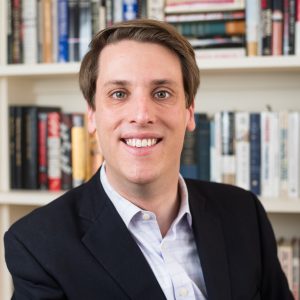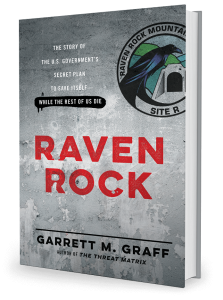If it’s the last week of the year and I’m sitting by the fire at home in Vermont, then it must be time for my round-up of the best books I’ve read in 2009. I spent much of this year doing research for my book about the FBI (due out Fall 2010, so watch for it!) so I didn’t read as widely as I often do. For the sixth year, here are my favorites:
1) Excellent Cadavers by Alexander Stille :: The only one of the probably 50 books that I read as part of my FBI research that could be rightly called literature, this incredible true story recounts the work of two crusading Italian prosecutors who first tackled the Sicilian mafia in the 1980s and were, in the end, assassinated for it. My book focuses for a chapter on the U.S. side of that case and I read the book en route to Sicily in May to attend the annual memorial service for both men, which was a deeply moving experience. I cannot fathom having the bravery to spend a decade doing work that you know will get you killed in the end. I cried when I got to the end.
2) World War Z: An Oral History of the Zombie Wars by Max Brooks :: Yea, so this is sci fi, but it’s so much more than that. As a long-form writer, I’m a huge fan of the oral history approach and Brooks applies it to a fictional topic masterfully. Simultaneously believable and unbelievable, Brooks’ story unfolds as oral histories do: Assuming that the reader is quite familiar with the events in question, which, since we’re not, makes for a great, unfolding epic. Oh, this book also is really helpful for ensuring you know how to respond when the zombies do come.
3) Wired for War by P.W. Singer :: My friend Pete, who works at Brookings on defense issues, has a history of being all-too-prescient in his book topics, which previously have explored child soldiers and mercenary contractors. In his new work on the robot-i-zation of war, he examines the drones and robots that are increasingly taking over war, the psychological impact on those who pilot and drive them, and the cultural and political impact of fighting low impact wars (at least on our side). I did a piece on the book in the magazine that previews more.
4) Arsonist’s Guide to Writers’ Homes in New England by Brock Clarke :: This was, far and away, the funniest novel I read all year. It’s incredibly dark and dry, but oh so funny.
5) Windows on the World by Frederic Beigbeder :: Almost the exact opposite of Brock Clarke’s novel, there’s nothing funny about this one. It focuses on a father and his sons having breakfast in Windows on the World the morning of 9/11. Beigbeder’s a French novelist and the book is his attempt to understand the attacks, so the book flits back and forth between fiction and his real-life reaction to the events in Paris. The book opens, “You know how this ends: Everybody dies.”
6) The Invention of Morel by Adolfo Bioy Casares :: A gift from a friend that I in turn gave to many friends this Christmas, this Argentinian novel, translated into English by Susan Jill Levine, is a magical realism story that Borges loved. He actually wrote the intro. Short and a fast read, it was beautifully written.
7) Traitor to His Class by H.W. Brands :: A huge tome, this biography of FDR gave me a great education about his life prior to the presidency, his personal life, and all the other parts you tend not to hear about in the capsule bios of FDR.
8) Floating Island by Garrett Epps. This is an old novel, full of all-too-true dark satire, about political life in Washington. Described by some as a “Catch-22 of politics,” the book was a hoot to read, although it left me shaking my head in how close our system is to a parody of itself. Two other books about Washington that stand out for me this year are The Hawk and The Dove by Nicolas Thompson, a dual biography of dove George Kennan and hawk Paul Nitze and their roles during the Cold War, which was an excellent primer both on the politics of that era and how our government lurches towards decisions, and Shelley’s Heart, by Charles McCarry, a constitutional political thriller from the 1990s set in the early years of this decade.
9) Paris in the Fifties by Stanley Karnow :: Karnow is an old Crimson editor I met by coincidence soon after I moved to Washington at an event. He’s a legend, known best for his Vietnam reporting, and also as one of the score or so of Crimeds who has won a Pulitzer. I took his memoir of living in Paris just after the War with me when I spent ten days in Paris this year; reading his book in the midst of all of the places and scenes he’d witnessed was delightful. The city is obviously quite different today, yet in many ways the same. I had the same happy reaction to Ernest Hemingway’s Paris memoir, A Movable Feast, which I read after I returned to the States, since I could visualize the places and had, in fact, even drunk at some of the same bars.
10) Genius in Disguise by Thomas Kunkel :: When I became editor this year, a friend gave me Kunkel’s biography of Harold Ross and the founding of The New Yorker. It’s a real romp and insightful about what made Ross and the magazine he created so singular, plus it covers all those romantic quirks of the time like the Algonquin Roundtable and New York between the wars.
An honorable mention this year goes to The Foreign Correspondent by Alan Furst. This year is a rare departure from my tradition of having a Graham Greene book on the list, which is mostly because, well, I didn’t read any Greene this year. I took a break from him to read Furst and John Le Carre novels, all of which were excellent, yet Furst’s Foreign Correspondent stood out for me for its portrayal of the period leading up to the outbreak of World War II in Europe.
[Check here for my past lists: 2008, 2007, 2006, 2005, and 2004.]


Recent Comments